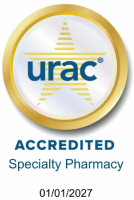The more we learn about the body as a holistic system, the more we’ve learned that healthy bodies are more likely to get pregnant and deliver healthy, full-term babies. Additionally, leading a health-focused lifestyle helps to alleviate symptoms of underlying infertility factors that are getting in the way of your pregnancy.
5 Tips For Boosting Your Fertility Chances at Home
Whether you’re just taking the plunge and are trying to conceive, or are working with a fertility specialist to help your conception dreams come to fruition, the following seven tips form a healthful, comprehensive foundation to increase your chances of fertility success.
1. Schedule a pre-conception appointment with your OB/GYN
Deciding you’re ready to “start trying,” is a big step. We recommend scheduling a special, pre-conception appointment with your OB/GYN. Hopefully, s/he has always been invested in proactively assessing your health and well-being. Now is the chance to hone the focus on fertility.
A pre-conception appointment could shed light on potential infertility factors you weren’t aware of as you share answer more specific questions. You may share symptoms or new medical/reproductive history that leads to the discovery of endometriosis, PCOS, irregular ovulation and other complications that can be treated and attended to now in order to support conception.
2. Stop smoking
Whether you’ve smoked for years or only partake recreationally, smoking is bad for fertility. There are in addition to being linked to higher infertility rates and increased risk of miscarriages, babies born to women who smoke are more likely to be premature, have low-birth-weight, and to suffer from respiratory and other health issues.
Quitting smoking is one of the hardest things you’ll ever do, but it is well worth it for you and everyone who loves you.
3. Switch to an anti-inflammatory diet
Unlike other “diets,” an anti-inflammatory diet isn’t restrictive. Rather, it redirects your attention to whole foods and specific foods that are known to reduce inflammation, while simultaneously reducing or eliminating foods that tend to increase or exacerbate inflammation. Reducing systemic inflammation gives you a head start on any medical or fertility treatment that may be required.
4. Conduct a general lifestyle assessment
The human body is a holistic system – where each part plays an integral part in the whole – and it’s all interconnected. As a result, infertility researchers have formed connections between virtually every aspect of life – diet, exercise, stress, weight management, sleep habits – and infertility rates seem to go up when a person’s lifestyle is out of balance in any of those areas. Conduct a personal lifestyle assessment or audit, and see if there are areas where you could benefit from more balance. Then do what it takes to address them.
5. Time intercourse correctly
For many decades, women who wanted to get pregnant have charted and plotted their menstrual cycle, timing intercourse with the day (or hour) they predict ovulation. This information is outdated. In fact, by the time you ovulate (or an at-home ovulation predictor kit says you are), it may be too late to get pregnant.
While a healthy, viable female egg only lives for about 12- to 24-hours after ovulating, healthy male sperm can live for multiple days in the female reproductive tract. Now, fertility specialists recommend having intercourse for several days leading up to ovulation – as well as the day you ovulate – to optimize your fertility chances.
Are you have a difficult time getting pregnant? It may be time to see a fertility specialist. Healthy women (no known medical or infertility factors) 35-years and younger should see a specialist after 12 consecutive months of trying without success, women 36-years and older should schedule a consultation with a fertility specialist after six straight months.
If you pursue fertility medications or treatments, consider working with Freedom Fertility Pharmacy or another fertility pharmacy to ensure optimal care. We’re there for you every step of the way, whether you’re pursuing fertility at home or via fertility treatments.



